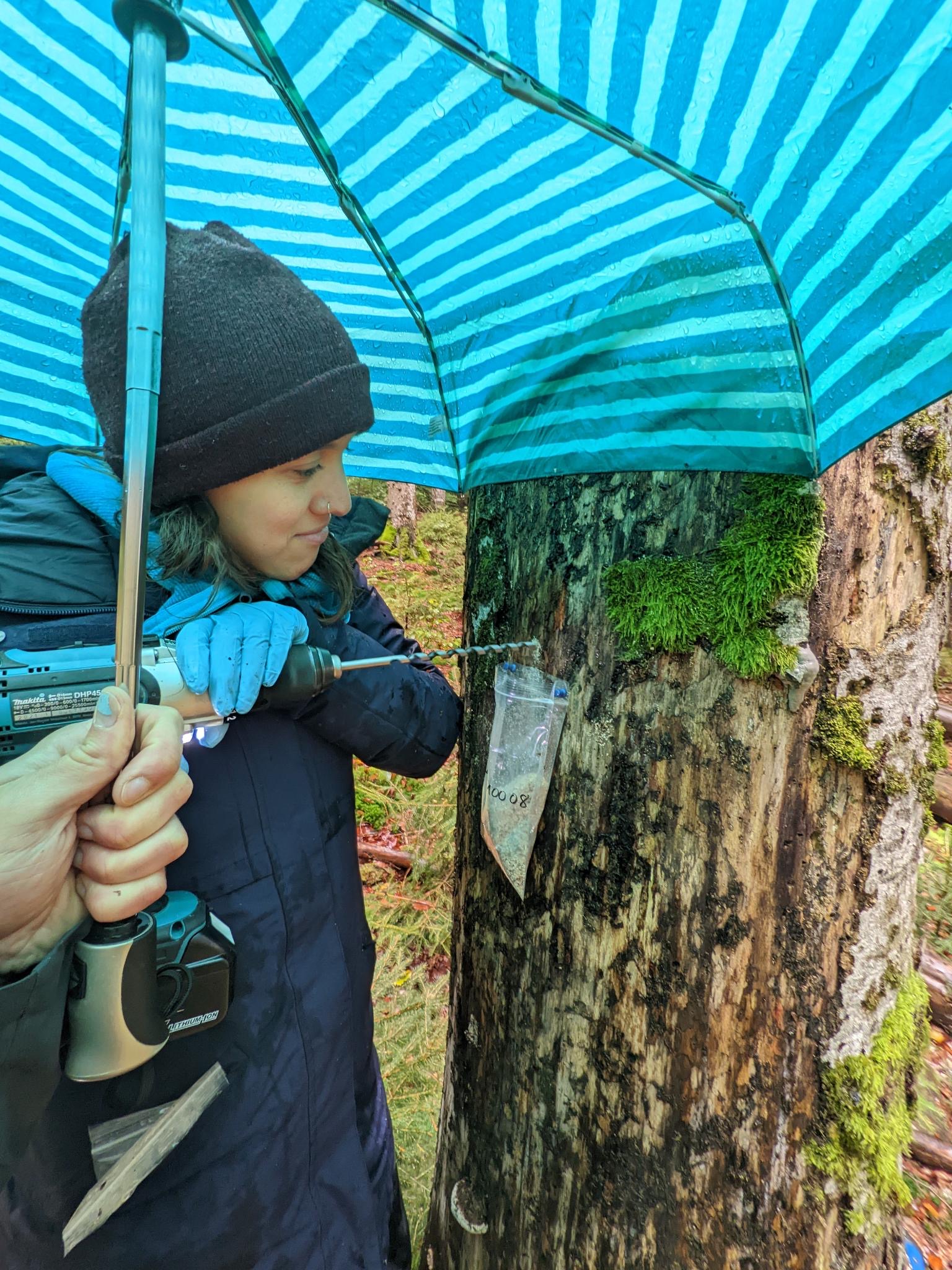Bronwyn Dyson

Bronwyn Lira Dyson (Doctoral student)
Short CV
Ph.D. Candidate, since 2022, Goethe University Frankfurt
M.Sc. Environmental Planning, 2018 – 2021, Technical University Berlin
B.A., 2011 – 2015, McGill
University (Montreal, Canada)
Research Interests
Forests can be used for a variety of purposes: commercial and non-commercial, competing and complementary. Some potential forest uses include harvesting wood, maintaining or increasing biodiversity, supporting nutrient cycles, promoting carbon sequestration, etc. In the past, timber harvesting has often been prioritized over all other forest functions, leading to forested areas becoming smaller and resulting in the loss of habitat for many species, the disruption of nutrient cycles, and other deleterious effects.
The breaking down and recycling of nutrients within forest ecosystems is crucial and microbes play an important role as decomposers. Microbes are extremely diverse but understudied. With recent advancements in the sequencing of DNA, we have the chance to research these microbial communities – their diversity, composition, and functions – and how microbes are influenced by harvesting and forest structure. In the case of my research, I have a particular focus on deadwood as a key element of forest structure. Deadwood is an essential habitat and resource for many organism groups, but its importance has often been overlooked and either removed from forests or otherwise excluded (i.e. by harvesting trees and thus precluding the occurrence of deadwood remaining in the ecosystem).
I am chiefly interested in researching deadwood-dependent microbes and how different aspects of deadwood (for example: species, age, position) affect microbial community composition, diversity, and microbial function. I am also interested in investigating different scales of diversity at the forest stand, regional, and landscape levels. Additionally, the influence of microclimate (i.e. local moisture and temperature) is also key to my area of research. My research is part of the larger BETA-FOR collaboration involving many researchers who are interested in investigating multifunctional forests and biodiversity.
I am always open for collaboration. If you are interested in pursuing a bachelor's or master's thesis on this topic, please contact me (liradyson@bio.uni-frankfurt.de). If you are interested in gaining experience in the lab or in the field, this is also possible. My field work locations are in the Bavarian Forest, the Würzburg University forest in Sailershausen, as well as forests in Lübeck, Hunsrück, and Saarland.
Research
BETA-FOR
The
BETA-FOR project was established in
2022 and is funded by the Deutsche Forschungsgemeinschaft (German Research Foundation). The aim of BETA-FOR is to research
how enhanced structural diversity in forests affects alpha, beta, and gamma
diversity across several trophic levels in five different forest regions in
Germany. The collaborative project involves doctoral and postdoctoral
candidates, principal investigators, and fellows based at different
universities across Germany and abroad. For more information, visit the
BETA-FOR website.
- Aktuelles und Presse
- Pressemitteilungen
- Öffentliche Veranstaltungen
- Uni-Publikationen
- Aktuelles Jahrbuch
- UniReport
- Forschung Frankfurt
- Aktuelle Stellenangebote
- Frankfurter Kinder-Uni
- Internationales
- Outgoings
- Erasmus / LLP
- Goethe Welcome Centre (GWC)
- Refugees / Geflüchtete
- Erasmus +
- Sprachenzentrum oder Fremdsprachen
- Goethe Research Academy for Early Career Researchers
- Forschung
- Research Support
- Forschungsprojekte, Kooperationen, Infrastruktur
- Profilbereich Molecular & Translational Medicine
- Profilbereich Structure & Dynamics of Life
- Profilbereich Space, Time & Matter
- Profilbereich Sustainability & Biodiversity
- Profilbereich Orders & Transformations
- Profilbereich Universality & Diversity




